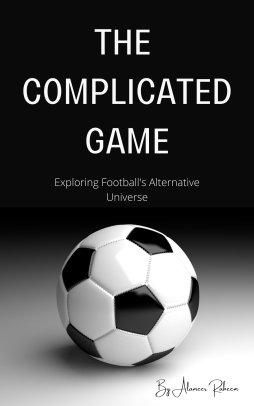How Will A.I Affect Football: Finkelstein"s Tank

Before we reach the time when artificial intelligence is able to detect talents, specifically at the beginning of the millennium, before the Korea-Japan World Cup by months, Daniel Finkelstein, the English journalist for The Times, was listening to the radio while driving one night and coincidentally heard Dr Henry Stott, an economics professor at the University of Warwick, talking about a statistical model that could predict the results of football matches.
Finkelstein was a political writer, but he was generally enthusiastic about football and especially the World Cup, and Stott's ideas caught his attention. The next day, he was at The Times headquarters trying to convince the editor-in-chief to use this model in the newspaper's coverage of the World Cup, and he succeeded.
In the beginning, scepticism was the natural response, and ridicule was the ideal way to express it. Finkelstein tells us that all of that changed when he put the probability of Senegal winning against France in the opening match at 25%, and how the tables turned on all the sceptics when the final whistle blew.
The coverage turned into a weekly column called "Fink Tank," named after Finkelstein, as a linguistic variation of the English term "Think Tanks," and other newspapers began to take interest in what was being written in it, in addition to coaches who had their weight in that era, such as Steve McClaren and Sam Allardyce.
Finkelstein now remembers those days when he hears about a new digital analysis model that could help teams and national teams design their counterattacks, or when he sees Ian Graham, his old friend and colleague in "Fink Tank," and the PhD holder in theoretical physics from Cambridge, working side by side with Jurgen Klopp at Liverpool, or when he notices the rapid progress made by tactical analysts and statisticians in the current job ladder at clubs and feels proud to have contributed to this leap in some way.
Michael Edwards, the former sporting director of Liverpool, started as a traditional analyst at Portsmouth more than ten years ago, and Andy Scoulding, the former analyst at Fulham, now leads the scouting department at Rangers, while Laurence Stewart, who comes from the same background, now leads the same department but in the entire Red Bull group, and Chris Davies, assistant to Brendan Rodgers at Leicester, was an analyst at Swansea before that
In recent years, many analysts have moved at a record pace in the functional structures of clubs, entrusted with more comprehensive and larger tasks related to the club's philosophy, playing style, and sports management.
Ben Stevens, the current head of scouting and performance analysis at Crystal Palace, and one of the first-generation analysts in English football tells the long way his country's institutions have taken in this space, not believing that they have moved to their current position, from a position where phrases such as "who are you?" and "why are you talking about football?" and "how many matches have you played?" were directed at them.
Information has been a real asset since the dawn of history, but football resisted it until recent years, as it was a closed field that oozed with favouritism and trust preference. However, it regained its natural position when it proved to players that it could help them get a higher salary and support their position during contract negotiations. It can even evaluate the performance of its agents by comparing their contracts with those of its peers.
All these areas were very grey in the past and relied primarily on social and publicity skills that had nothing to do with football. Jeremy Steele, the founder of Analytics FC, which provides services such as providing players with statistical support during contract renewals, says that data science has added credibility to these negotiations, and is now relied on by both clubs and players to build their arguments and justifications for a higher or lower salary.
This does not eliminate the grey areas or turn them into precise mathematical equations, but it certainly reduces the randomness of the process.
Now, similarly to J.A.R.V.I.S. in the Marvel movies, we have Watson and Davies in the world of football. Entire systems are built with the intention of doing the work coaches usually do. But, more in that in the final part of this series.
Sources
"Goal!".. The 22 Best Football Movies - The Hollywood Reporter
"I wish the fans would find themselves in it." Why is Nick Hornby's memoir "Pitch Fever" the most popular? Goal
Artificial intelligence may be about to change football talent scouting - Forbes
How does artificial intelligence facilitate the detection of players in football? - Forbes
AiScout - Official Website
The app that hopes to revolutionize football! CNN
Arsene Wenger highlights the shortcomings of Europe's current academy system - ESPN
football remodeling; Why have transfers, scouts, and coaches steeped themselves in data science? - The Athletic
Henry Stott - Linked In
The Fink Tank
Can computers teach us how to build our counterattacks? - The Athletic
"Watson" .. the application of artificial intelligence that puts you directly on the field and was able to predict the transfer of Riyad Mahrez to Manchester City! - The Athletic
We present "Davies"... a work interface for identifying and evaluating talents around the world - American Soccer Analysis